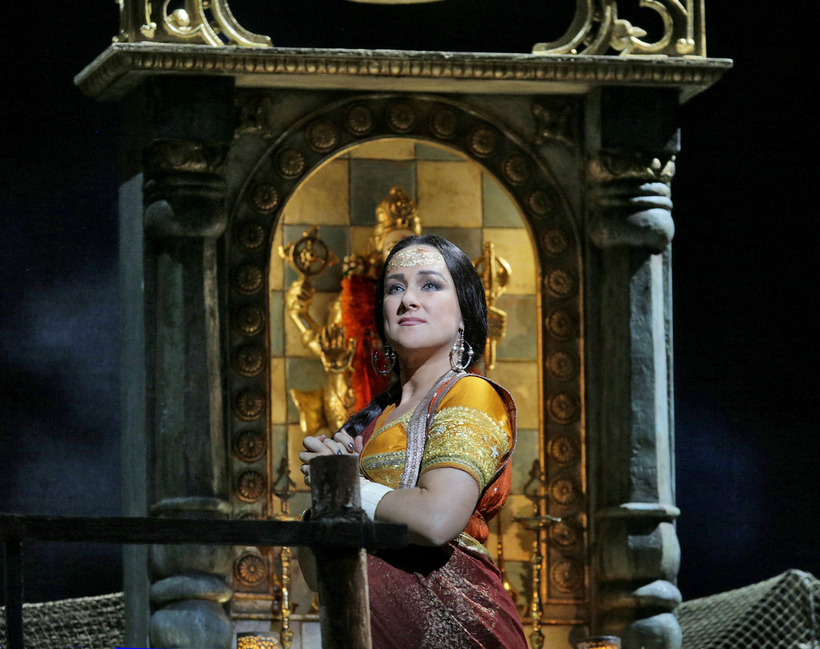No duet for a tenor and a baritone makes audiences happier than the one from Georges Bizet’s Les Pêcheurs de Perles. But how many know what the guys are rhapsodizing about and what twist of fate their song foretells? A live Met video filmed on January 16, 2016, reveals the full Dickensian context.
Nadir and Zurga—here the tenor Matthew Polenzani and baritone Mariusz Kwiecień—are long-lost friends smitten by the same unobtainable beauty. Even as they cling to the memory of their first glimpse of her (“Ô vision!”), they swear to let nothing come between them.
In Polenzani and Kwiecień’s reading, the men fly on wings of ravishing ambivalence. Left alone, Polenzani, in blissful form, soars even higher in the blissful soliloquy of longing ”Je crois entendre encore,” transported not by his beloved’s face or touch but by the sheer loveliness of her voice. Opera is in Nadir’s DNA.
Bizet’s tale unfolds in ancient Ceylon on the eve of the pearl harvest in the Indian Ocean. The virginal priestess Laïla wafts in from afar to pray in song for the safety of the divers. For her as for Nadir, it’s the ear that is the portal to the soul. In Diana Damrau, a giving actress and gleaming vocalist, the Met fields a Laïla fit for Brahma’s hearing.

Bizet died at age 36 with the recent fiasco of Carmen fresh in his mind. A decade earlier, Les Pêcheurs de Perles had met with only mixed success. Who, though, could have missed young Bizet’s sinuous gift for melody and exotic atmosphere? Not the paying audience, who liked Les Pêcheurs de Perles even if they didn’t love it. The press, on the other hand, blasted the music as derivative, the plot as sketchy, and Bizet’s first-night curtain call as lacking in humility.
“This sort of exhibition is admissible only for a most extraordinary success,” one critic sniffed, “and even then we prefer to have the composer dragged on in spite of himself, or at least pretending to be.” The voices of Bizet’s early champions Hector Berlioz and Fromental Halévy, a composer then much higher on the totem pole, could not turn the tide.
While the score of Les Pêcheurs de Perles is best known for its lyricism, the third act escalates to crackling melodrama. The showdown between the disgraced Laïla and Zurga is a matter of life and death. As the high priest Nourabad, Laïla’s outraged chaperone, the bass Nicolas Testé gets to hurl some anathema, and this he does with a will, like a gorgeous Gandhara Buddha come furiously to life.
The serviceable modern-day production by the filmmaker Penny Woolcock injects a touch of the sublime in the diving sequences, which superimpose Cirque du Soleil-style aerialism on aqueous projections. And watch out for the tsunami. Gianandrea Noseda conducts with flair for Bizet’s pulse, sinew, and perfume.
Le Pêcheurs de Perles is available for streaming on the Met on Demand Web site
Matthew Gurewitsch writes about opera and classical music for AIR MAIL.He lives in Hawaii

